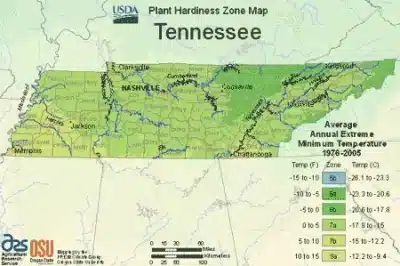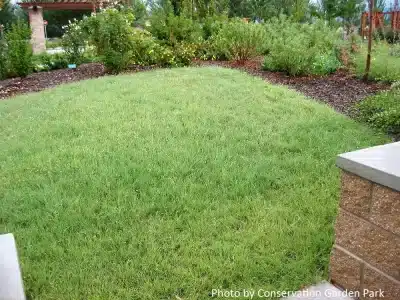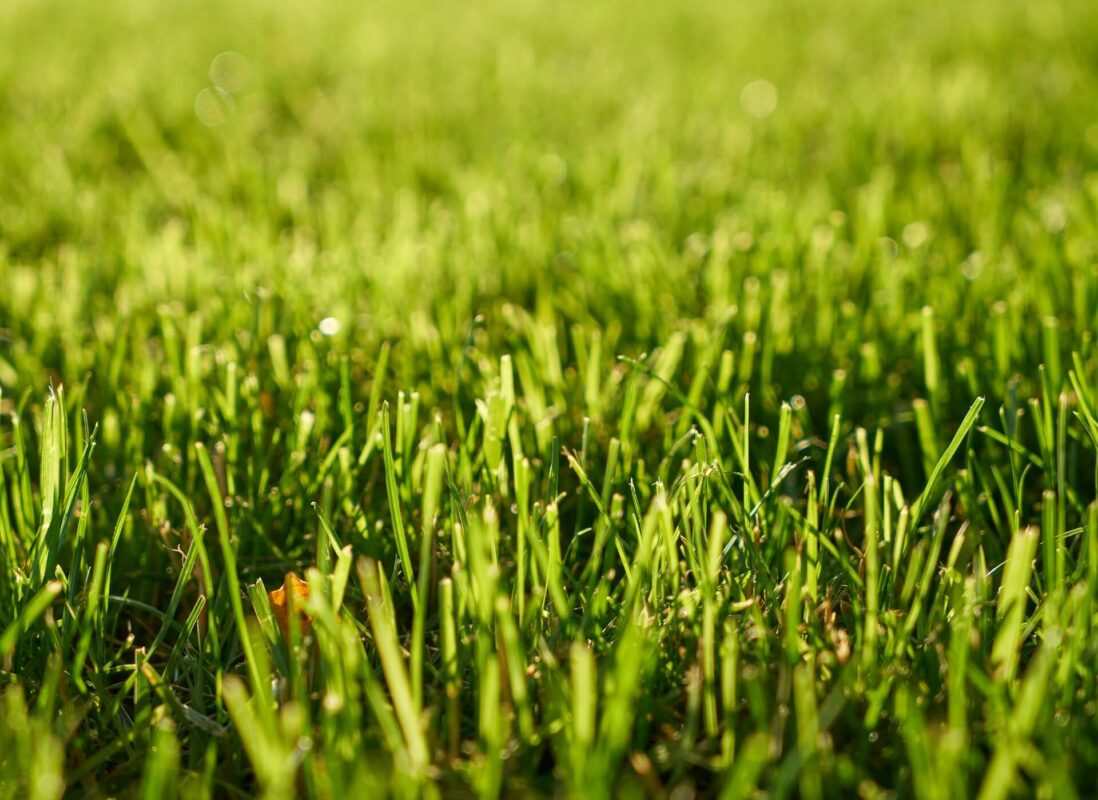Tennessee may be known for having a mild climate, but that doesn’t mean you can plant just any grass seed on your property.
Aside from its climate, there are other factors you must consider before choosing the grass seed for your property in Tennessee. The right type of grass seed in your respective zone, the appearance you want to achieve on your lawn, and the maintenance tips are just some of the things you must keep in mind if you’re serious about growing turfgrass.
To help you choose the best lawn grass seeds for your property, this post will guide you through the different grass seeds to choose from based on your location. We’ll also talk about lawn care tips to help ensure that you’ll be able to grow and maintain a beautiful and lush turf year-round.
Tennessee’s Climate and Planting Zone
Tennessee has moderate weather all year long, with four distinct seasons. It’s winters are cool but not cold and its summers are warm but don’t hit extreme temperatures.
The average high temperature of Tennessee during the summer is 89°F while the average low temperature is 67°F. In the wintertime, Tennessee has an average temperature of 40°F.
Looking at its plant hardiness zone map, Tennessee has zones ranging from 5b (-15 to -10°F average annual extreme minimum temperature) to 8a (10 to 15°F).

Source: Gardening Know How
The northeast part of Tennessee beside Kingsport has the coldest zones. The cities within Nashville and Cookeville range from zones 6b to 7a. The western part near Memphis resides in zone 8 which is the warmest.
Due to its moderate climate, it’s possible to grow both warm- and cool-season grasses in Tennessee.
Cool-Season Grasses
Cool-season grasses thrive in the colder zones of any region. As a result, they have good winter tolerance and limited winter dormancy—their leaves won’t turn brown during the winter season. This grass type also has fairly good shade tolerance.
To ensure that cool-season grass survives winter, make sure that the soil is moist (but not wet) by adding a thick layer of mulch. Once the snow melts and spring is on the horizon, test the soil before adding fertilizer.
Mow the grass at their recommended heights depending on the grass variety you’ll grow on your lawn. During the summer, irrigate two to three times a week aside from constant mowing.
Plant this type of grass in the fall as it will germinate best under temperatures between 65-75°F and when the soil temperature becomes 55°F. Established cool-season grass grows best on soil with temperatures ranging from 40-45°F.
Below are the different types of cool-season grass that you can plant on your Tennessee property:
Fine Fescue
True to its name, fine fescue is a standard turfgrass with fine-textured blue-green leaves. It grows in clumps or tufts. and germinates quickly. It is the most shade-tolerant among cool-season turfgrasses—this variety of grass can reach peak growth even without direct access to sunlight.
The only drawback of fine fescue is its inability to withstand heavy foot traffic. So, if you don’t have pets or kids, or you use a paved walkway to reach entry points, this variety is perfect for beautifying your property.
Kentucky Bluegrass
Kentucky bluegrass is a self-spreading grass that forms a very dense turf with boat-shaped leaves of dark green color. This common cool-season grass doesn’t germinate as quickly as others. However, once established, the grass adapts to high foot traffic very well and recovers from injury fast.

On the other hand, Kentucky bluegrass has a low tolerance for heat and drought due to its shallow roots. Mow the grass 1.5 to 2.5 inches from the ground during spring and fall and 2 to 3.5 inches during summer.
Perennial Ryegrass
Perennial ryegrass is bunch-forming grass with fast germination and seedling growth. These characteristics have made the grass a good short-term solution for providing quick color and establishing soil stability during the season. However, perennial ryegrass has become a staple grass type for lawns across the country, with property owners using this variety as a permanent solution.
Similar to Kentucky bluegrass, perennial ryegrass’s shallow roots prevent them from fighting effectively against heat and drought, so it thrives in cooler temperatures. Maintain the same mowing heights and seasons as Kentucky bluegrass.
Warm-Season Grasses
Warm-season grasses are generally bunchgrasses that grow up to six feet high and with roots reaching down to six feet deep in the ground. The latter characteristic makes warm-season grasses perfect for preventing soil erosion. Their hardiness to the summer and heat allows them to survive the season without much water.
Growing warm-season grass is best done during late spring to summer. The soil temperature around that time is approximately 65˚F to 70˚F at three feet below surface level.
The grasses require fertilizing once they’re about to break dormancy and get their color back. Mowing the grass is also a good way to promote optimal growth year-long.
Below are the different warm-season grasses you can grow on your Tennessee property:
Buffalo Grass
Buffalo grass spreads extensively with gray-green curly leaves. It is drought-tolerant and can withstand frequent traffic. As a low-maintenance grass, there’s little need to mow it as frequently, when compared to other grasses.

The downside of this warm-season grass is its unkempt appearance, even with a regular maintenance schedule. It also takes time to regain its green hue in the spring after dormancy.
Blue Grama
Blue grama is another bunchgrass with narrow blades that can grow up to six inches long. It can grow on any soil type except those that are wet and poorly drained.
Blue grama is commonly used as summer grazing for domestic livestock. However, this warm-season species’ resistance to drought also makes it a popular choice for low-maintenance turfgrass.
Find the Right Tennessee Grass Seed to Grow
The beauty of living in a moderate climate like Tennessee is that you have a wide variety of grass types to choose from and grow on your lawn. For instance, Kentucky bluegrass is a perfect choice for people looking for beautiful and resilient grass that will thrive in colder and chillier locations in the state. On the other hand, properties in the humid zones can grow warm-season grass like Buffalo grass without worrying too much about maintenance and upkeep.
If you want to be sure that you'll get the best grass seed for your Tennessee lawn, visit the Seed Selector by Nature’s Seed today. Filter the grass seeds available for your choice based on different variables like location, use, price, and more.
Also, consider planting blends on your lawn or yard. They contain multiple grass seeds that complement each other and mask each other's weaknesses and deficiencies. This way, you can grow an attractive lawn that stays green and healthy all year long.

